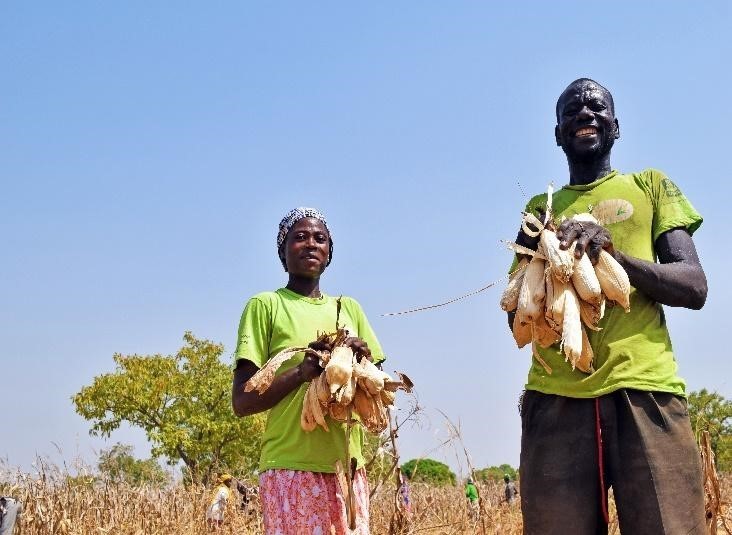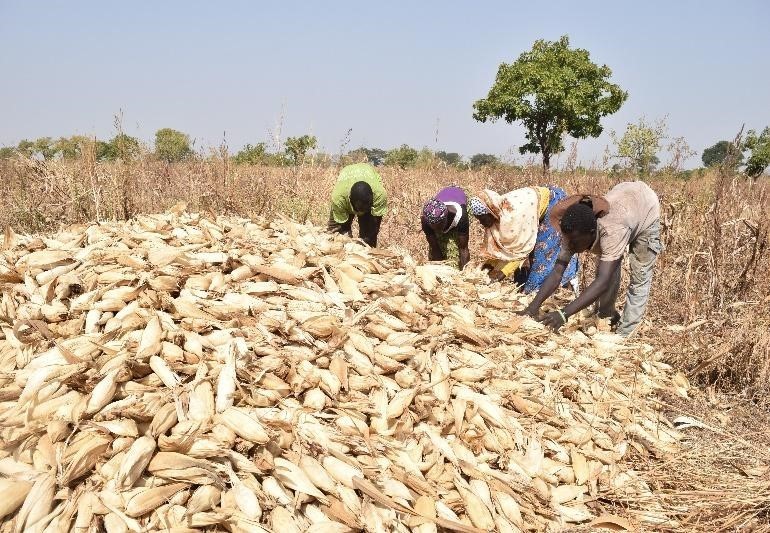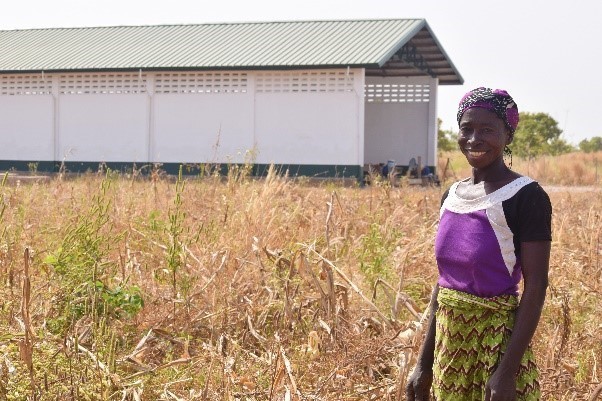
From 2013 – 2018, Solidaridad West Africa implemented the Sustainable Maize Programme in northern Ghana in partnership with Masara N’Arziki, Wienco, and Yara Ghana. The programme, funded by the Dutch government, applied sustainable agriculture principles with an emphasis on conservation farming and improved post-harvest handling of maize. The overall aim was to improve food security and incomes.
A baseline study carried out as part of the Sustainable Maize Programme identified women’s participation in the maize value chain to be less than 10%. Therefore, a key objective of the programme was the improve gender inclusivity by actively involving women.
As the programme’s gender officer, I’d like to provide some insights into the deliberate gender-responsive approaches that contributed to a successful programme outcome.
Key gender considerations
Solidaridad recognized that the sustainability of the intervention and long-term food security would only be achieved if deliberate efforts were made to actively involve women as key actors. In northern Ghana, maize production is mostly male dominated.
Women and men engage on maize differently, presenting different needs and concerns.
Thus, we planned a series of targeted interventions. These interventions responded to the beneficiaries’ needs, concerns, and experiences that had been brought to light through a baseline survey. We did this to maximize the programme impacts and reduce existing inequalities.

The gender approach
Given the re-distributive capacity of women, Solidaridad prioritized support for women and promoted diversity to enhance resilience and empower beneficiaries to serve as active change agents.
We addressed systemic barriers that limited women's participation in, and benefit from, the programme.
Key amongst them was the group membership system commonly practised in the intervention areas. Many women were averse to the membership system due to its collective risk-sharing feature. Furthermore, the system required a minimum of five acres of maize farmland by a qualifying member. Many women could not meet this. To increase their participation meant abolishing the group system and relaxing the entry requirements for women.
In addition, the programme recruited qualified women as officers to lead in the provision of training and technical support to farmers. The officers received additional training in gender-sensitive approaches and a pocket-sized gender mainstreaming guide was developed to facilitate field application.

Conscious gender efforts yield dividends
The targeted approach motivated more women to participate in the programme. Out of the 10,000 farmers who benefited from the programme, 20% were women. This was a sharp increase from the baseline of 10% – a real success story. Participants increased their maize yields from an average of 1.8 metric tonnes per hectare to 4.5 metric tonnes. This affirms Solidaridad’s gender business case:
By addressing barriers to the participation of women and other marginalized groups and tapping into their unused potential, the impact of interventions in supply chains can significantly increase.
Key lessons
The outcome of the Sustainable Maize Programme demonstrates a key lesson: when people are given an unhindered opportunity to participate in and benefit from development processes, they feel more recognized and motivated to contribute to change processes. It is therefore imperative that development workers strive to understand and address the practical, cultural, social and legal barriers to gender inclusivity to catalyse social change.
Follow Solidaridad West Africa's programme officer for gender, Nafisatu Yussif, on LinkedIn
Learn more about Solidaridad's fruit and vegetable programmes
